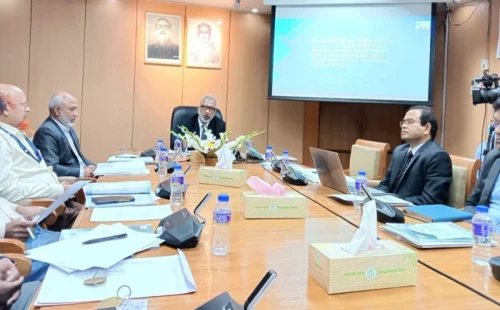Suspicious transaction reports up 44pc

The number of reports on suspicious transactions and activity received by the Bangladesh Financial Intelligence Unit (BFIU) rose 44 per cent year-on-year in the last fiscal year of 2020-21.
The agency received 5,280 suspicious transaction reports (STRs) and suspicious activity reports (SARs) from the reporting agencies, including banks and non-bank financial institutions, according to its annual report.
The BFIU unveiled the report at the Bangladesh Bank headquarters in the capital yesterday.
The agency is responsible for analysing STRs, SARs, cash transaction reports (CTRs) and information related to money laundering and terrorist financing reported by financial institutions and other sources.
Banks and other reporting agencies submit STRs and CTRs if they think that there might be a possibility of perpetrating money laundering.
"The rise in the STR is not a negative phenomenon as the upward trend indicated that the country's financial sector is now more cautious to tackle money laundering and terrorist financing," said Md Masud Biswas, head of the BFIU.
The BFIU forwarded 73 reports to law enforcement agencies, mostly to the Anti-Corruption Commission and the Criminal Investigation Department for their next course of action.
CTRs were up 27 per cent year-on-year to 2.05 crore in FY21, according to the report.
The BFIU defines CTRs as any kind of cash deposit or withdrawal valued at Tk 10 lakh or more through one or more transactions in an account in a single day.
The volume of CTRs stood at Tk 14,438,29 crore last year, up 23 per cent the year prior.
The intelligence agency also carried out an analysis on such transactions in 21 border districts since they are prone to money laundering and terrorist financing activities.
It found that cash transactions in the form of CTRs in 15 out of the 21 districts were higher than their neighbouring districts.
For instance, cash transactions that falls in the CTR category stood at Tk 16,894 crore compared to Tk 9,460 crore a year ago.
A BFIU official says smuggling and criminal activities in the border areas are usually higher than in other parts of the country, prompting the agency to conduct the analysis.
"We usually conduct investigations in the border districts if unusual cash transactions take place," he said.
Masud Biswas says some money has been laundered from Bangladesh and the agency has taken measures to rein in the financial felonies. He, however, did not give any specific figure.
Bangladesh lost about $8.27 billion on an average annually between 2009 and 2018 for mis-invoicing of values of import-export goods by traders to evade taxes and illegally move money across international borders, said Washington-based Global Financial Integrity in December.
"We have taken several initiatives after Panama and Pandora papers revealed some names of money launderers from Bangladesh," Biswas said.
The Panama Papers is a huge leak of documents that show how clients of Panamanian law firm called Mossack Fonseca were able to launder money, dodge sanctions and avoid tax. They were released in 2016.
The Pandora Papers are a 2021 leak of more than 12 million documents incriminating hundreds of global politicians and wealthy elite for tax avoidance and corruption.
When asked whether the BFIU has made any attempt against the Bangladeshi people who are believed to have participated in the second home scheme in the countries such as Canada and Malaysia, Biswas declined to comment.
.png)













